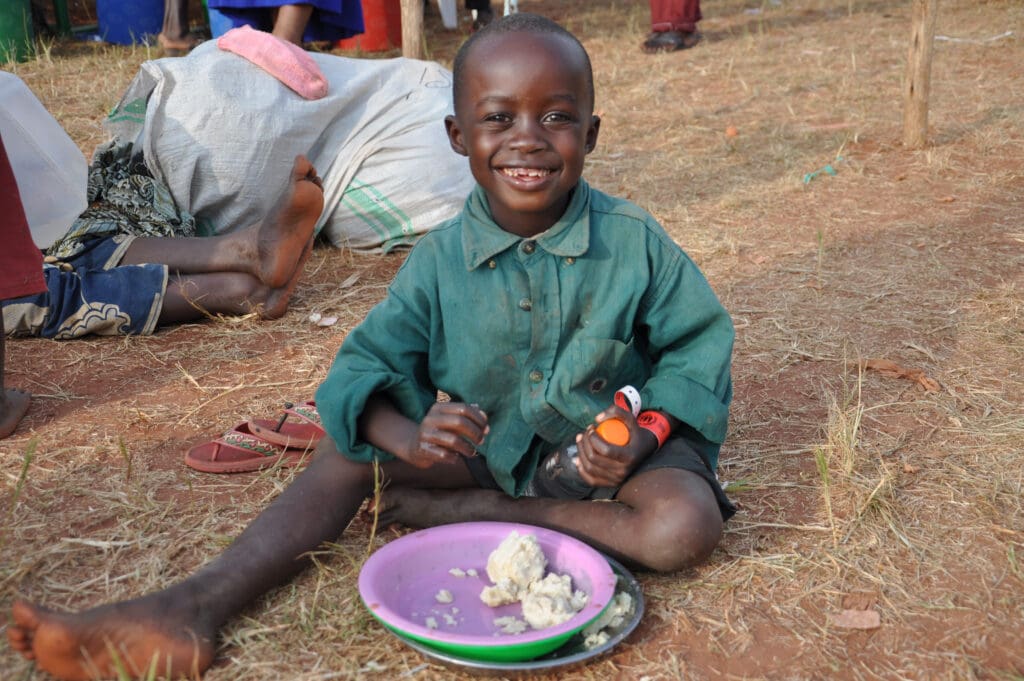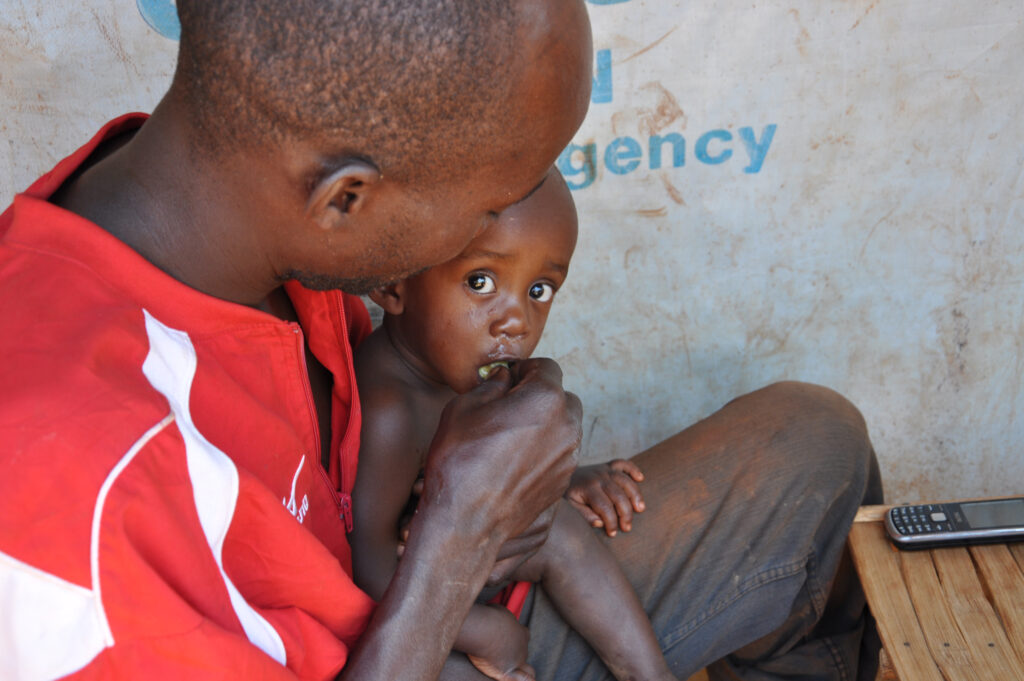How Data Analytics and Visualization Software Is Transforming the Lives of 240,000 Refugees in Tanzania

By Vincent Matak, WFP Communications Officer, Technology Division
The nutrition a new-born receives during their first three years can set the stage for the rest of their lives. It’s the most critical developmental juncture, when the brain undergoes rapid development, underscoring the necessity for healthy meals so they can grow healthily and flourish.
But for refugee families fleeing conflict, access to reliable food sources is scarce, and widespread undernutrition can halt children’s development or result in death. It’s why the United Nations World Food Programme (WFP) is harnessing the latest technology in refugee camps in regions like Kigoma in Tanzania, ensuring vulnerable families continue receiving the vital nutrition they need to reach their fullest potential.
Home to 240,000 refugees from countries such as Burundi and the Democratic Republic of Congo (DRC), UN World Food Programme staff in the Kigoma region of Tanzania are providing vulnerable pregnant women and children with lifesaving food rations fortified with essential vitamins and minerals to prevent stunting, treat malnutrition and improve nutrition awareness and practices.

A father feeds his baby ugali, a local staple made with corn meal provided by WFP, at Mtendeli refugee camp.
Last year alone, the UN World Food Programme provided over 53,000 refugees with these supplementary feeding services, backed by the latest digital solutions such as MoDa – the UN World Food Programme’s new data collection tool – which allows staff to monitor, analyze and ultimately improve the way the UN World Food Programme does its work.
In the three refugee camps in the region, staff are using the tool to know if food distribution sites are safe and well managed, if beneficiary rations are calculated correctly and if their services are delivered efficiently, all in a tablet app – regardless of their connectivity or location in the deep field.
Staff can custom build ways to capture information and collaborate seamlessly in one platform, enabling them to gather data in a more timely, systematic and accurate way and to measure the effectiveness of interventions throughout time and identify areas for improvement.

Over 1,200 staff from 40 country offices are using the platform to enhance programming across the world, helping answer critical questions and address issues that enable WFP to serve beneficiaries better.
That data, which can be integrated directly into UN World Food Programme Analytics (Tableau), can then be visualized to identify key patterns and trends to enhance decision-making on the ground, letting staff know what processes need to change to improve the UN World Food Programme’s ability to serve hungry families and accelerate its mission to create a world without hunger.
“Together, this information allows us to know what is working and what isn’t, helping us ensure we deliver the right support in the right way, at the right time, no matter the circumstance,” says Tanzania Deputy Country Director, Wendy Bigham.
MoDa is part of the UN World Food Programme’s continuous efforts to digitally transform its operations, embracing the benefits of data and digital technology to more swiftly support over 250 million people now expected to face food insecurity as a direct result of COVID-19.
“TEC is excited to work with Tanzania and other countries to help drive an ambitious data agenda. Data is at the heart of digital transformation and can help the UN World Food Programme be a more effective accountable and agile organization,” says Pierre Guillaume Wielezynski, chief of digital transformation services within TEC.
In addition to improving nutrition services within Tanzania, staff are also harnessing the platform to enhance training for smallscale farmers in Dodoma, one of the region’s most susceptible to drought in Tanzania, to increase climate resilience and boost productivity.
UN World Food Programme staff are leveraging digital tools such as Tableau to track the nutrition services beneficiaries receive, helping ensure Cooperating partners are following the adequate processes.

A young boy is one of several newly-arrived refugees enjoy their morning porridge provided by WFP at Lake Tanganyika Stadium in Kigoma.
Powering Tanzania’s data capacity is the data coordinator, who is charged with facilitating the use of digital technology across teams to enable fast, effective decision-making on the ground.
“It comes down not only to having the latest technology,” says Beatriz Febres-Cordero, Tanzania Data Coordinator, “but having a culture that is ready to ensure that useful information is regularly extracted from operations and fed into programs so that we address key business issues and deliver more with less.”




